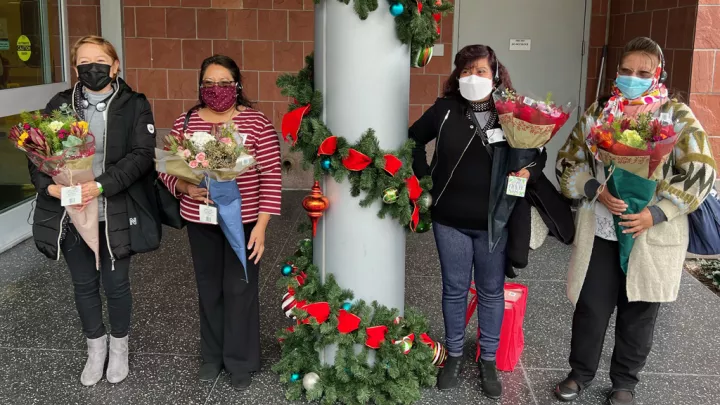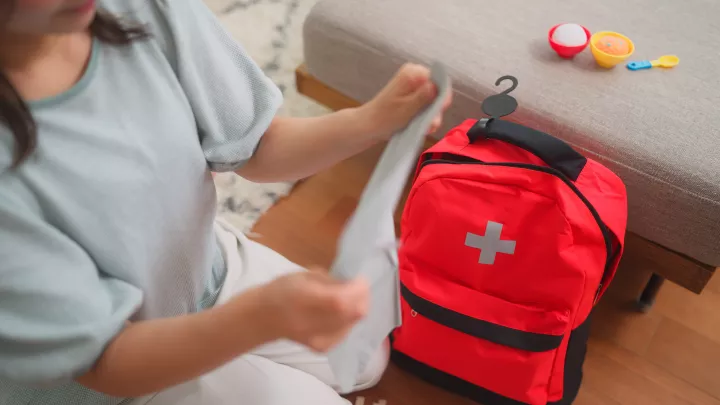
Key Pandemic Medi-Cal Protection for Children Ending
At the start of the spread of COVID-19 in 2020, Congress passed a relief bill that prevented states from conducting eligibility checks on Medicaid beneficiaries and canceling benefits of those who no longer qualified for the program. In California, recipients of Medi-Cal, the state’s version of Medicaid, were guaranteed coverage throughout the duration of the public health crisis, regardless of a change in income or other criteria that would have otherwise made them ineligible.
This protection, known as the “continuous coverage requirement,” expired March 31, 2023, only weeks ahead of the May 11 end of the federal COVID-19 public health emergency. The traditional system of annual renewal has been reinstated, and Medi-Cal beneficiaries will again undergo yearly “redetermination” by the state to determine whether they continue to meet the program’s eligibility requirements.
Amanda Daigle, MPH, Senior Program Manager of Ambulatory Operations at Children’s Hospital Los Angeles, says the end of the continuous coverage requirement is catching millions of Medi-Cal holders by surprise. In fact, the federal government estimates that nearly 7 million eligible Americans will be dropped from Medicaid for failing to respond to a notice that their plan is up for renewal and they must verify their eligibility.
“Our biggest fear is that the communication is going to get missed and people will be disenrolled for a procedural issue and not because they aren’t eligible anymore,” Daigle says. “That’s the biggest concern—families losing coverage and potentially not even realizing they’ve lost coverage until they’re trying to access care.”
Update or confirm your address—now!
Thankfully, the process of verifying Medi-Cal eligibility is not difficult or time-consuming—but it is mandatory. For beneficiaries it starts with one critical step: updating their mailing address if it has changed since the beginning of 2020, or, if it hasn’t, confirming that the address Medi-Cal has is correct.
This step is imperative because state officials will be mailing notices about the need to apply for renewal by a designated date. Daigle says that even if beneficiaries are certain their address has not changed since the start of the pandemic, they should confirm that the system has it recorded accurately.
“You should not wait to update your information,” she says. “The fear is that the mail will go to the wrong address.” Failing to respond may cause coverage to be canceled.
Daniela Tapia Ortega, Community Health Educator and Medi-Cal assister at CHLA, explains that there are a few ways beneficiaries can update or confirm their addresses.
- Call DPSS at 866-613-3777. Families can call the Los Angeles County Department of Public Social Services (DPSS) or go to their local office in person and speak to an eligibility specialist who can let them know if their address needs to be updated. The specialist can also tell them if they need to submit any documentation, such as income verification, to maintain their benefits.
- Create an account at BenefitsCal.com. Tapia Ortega says this do-it-yourself solution is “a lot easier for a lot of people.” Creating an account at BenefitsCal.com will connect beneficiaries to their Medi-Cal file, allowing them to update information, upload documents and take any other steps needed to renew. They will need their case number to access their file. If they don’t know it, Tapia Ortega says DPSS can provide it.
- Contact CHLA. “Another resource is me, here at the hospital,” Tapia Ortega says. “They can connect with me and I can help them through the process.”
Tapia Ortega can lead families through placing a call to DPSS to retrieve their case number if they don’t know it and are uncomfortable calling the agency on their own. She can also help them create an account at the BenefitsCal.com portal so they can access their Medi-Cal file. Since California restarted eligibility checks on April 1, Tapia Ortega has already assisted several families who have reached out to her after receiving a notice that their Medi-Cal plan is up for renewal.
Beneficiaries can reach out to Tapia Ortega at 323-646-3134 or by email at dtapiaortega@chla.usc.edu. See the box below for more ways to contact her.
More You Should Know
Daniela Tapia Ortega, Community Health Educator and CHLA Medi-Cal assister: In addition to receiving calls or emails (323-646-3134 or dtapiaortega@chla.usc.edu), Tapia Ortega sees walk-ins from 9 a.m. to 5 p.m. at two locations inside Children’s Hospital Los Angeles: Mondays, Thursdays and Fridays at the AltaMed Clinic; Tuesdays and Wednesdays at the Family Resource Center. She also hosts “Understanding Medi-Cal” at the Family Resource Center on Wednesdays at 5 p.m. The class is conducted in both English and Spanish.
July 1, 2023: The date that the Department of Health Care Services, the state Medi-Cal agency, will begin the process of ending Medi-Cal coverage for people who did not respond to their renewal notice or who have been determined to no longer qualify for the program. (The renewal date is based upon the beneficiary’s original Medi-Cal enrollment date.)
Jan. 1, 2024: The effective date for lifting the eligibility restriction on undocumented adults ages 26-49. Right now, that group of persons is not eligible for coverage. As of the start of 2024, the only restriction on coverage for those without documentation will be income, not age.


